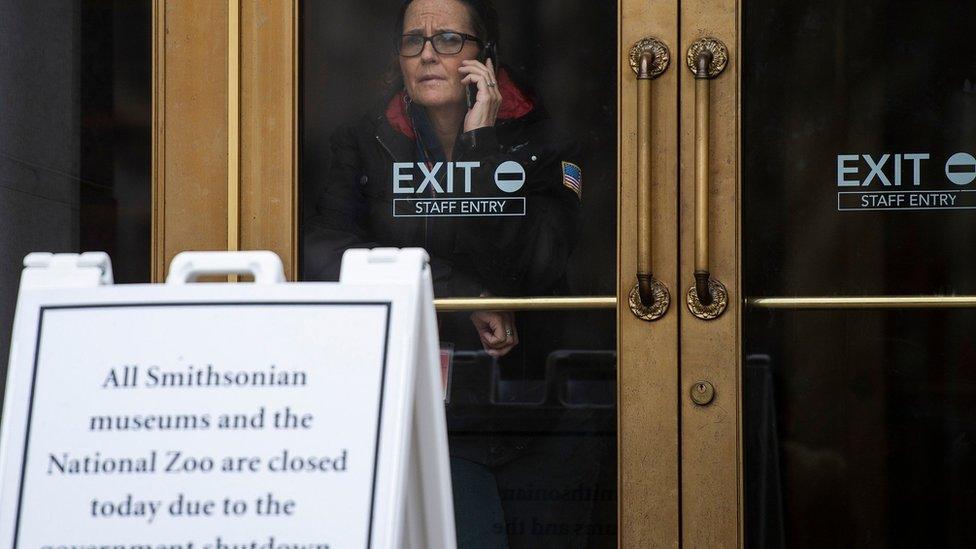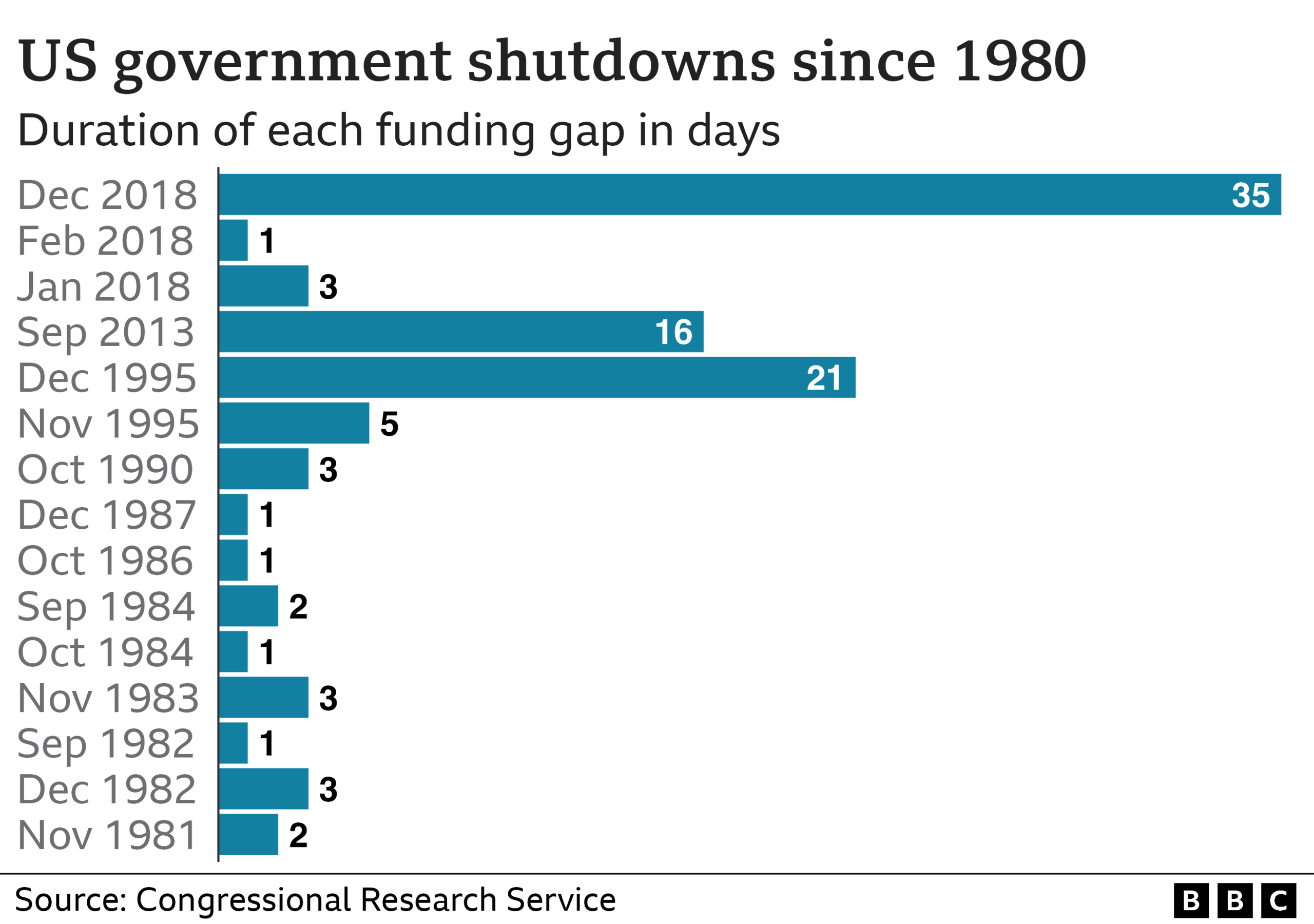What is the likelihood of a US government shutdown?
- Published
Watch: How does a government shutdown impact the US?
The US has narrowly avoided its 22nd government shutdown in 50 years, after Republicans in Congress sided with Democrats to pass a last-minute temporary spending plan.
The move resets the clock on the Congress deadline to pass a new budget to keep funding the federal government, granting lawmakers another 45 days to strike a long-term deal.
If they do not manage to come up with one, several key government departments will cease operating in little over a month.
What is a shutdown?
Many federal government agencies rely on annual funding approved by Congress.
Every year, these agencies submit their requests, which Congress must pass, and the president must sign budget legislation for the next fiscal year.
If agreement is not reached by the start of the fiscal year on 1 October, then there is a shutdown, where all non-essential discretionary functions stop.
Usually when the deadline looms, lawmakers from both parties agree on temporary funding based on the previous year's requests.
This is called a continuing resolution (CR) and is a stop-gap way to keep agencies open until Congress can agree.
This is what House Speaker Kevin McCarthy finally proposed on Saturday, guaranteeing funding for federal agencies until 17 November.
Why is it happening?
Any House budget must pass in the Democrat-controlled Senate - the upper chamber - and then be signed off by President Joe Biden.
But there is deep disagreement about spending among the Republicans in the lower chamber of Congress, which they control.
A right-wing faction in the House is demanding deep cuts and wants to stop further funding of the war in Ukraine.
They had voted down attempts by the party leadership, headed by Speaker Kevin McCarthy, to bring a deal to the floor of the House.
The right-wing factions had vowed to topple Mr McCarthy as leader if moderates passed any solution with Democratic support.
At his Saturday news conference, Mr McCarthy challenged those who oppose him to "bring it", adding: "There has to be an adult in the room."
Saturday's CR passed on a bipartisan basis - but 90 members of Mr McCarthy's party voted against it.
The bill notably excluded any funding for Ukraine, spending cuts or border policy changes - raising the likelihood of a fresh fight over the issues in the coming weeks.

How does it affect daily life?
If no deal is struck by 17 November, then the US will have its first shutdown since early 2019.
More than 1.3 million active-duty members of the military and thousands of air traffic controllers will be among those working without pay.
In recent shutdowns, the military were still getting paid because the defence department had a separate funding deal but that has not happened this time.
Government employees deemed non-essential are put temporarily on unpaid leave - called a furlough.
This will impact the food assistance programme, federally funded preschool, the issuing of student loans and food inspections, and National Parks will close.
It will also affect tax refunds and related administrative activities, such as income and social security numbers - delays here could prevent people from getting other services, such as a mortgage.
In 2013 there were some surprising consequences, such as American cemeteries closing in Europe and the US-Canada border only being patrolled by one person.
How common are shutdowns in US?
Quite common. President Ronald Reagan oversaw eight shutdowns during his tenure - though all were relatively brief.
And there were three when Donald Trump was president, including the longest in history at 36 days which ended in January 2019.
That one happened because of disagreements over funding a wall on the Mexico border.
The Congressional Budget Office (CBO) estimated that it reduced economic output, external by about $11bn, including $3bn that it never regained.

Shutdowns over budgets are almost unique to US politics.
Under the US system, the different branches of government have to reach an agreement on spending plans before they can become law.
In most countries, budget votes become votes of confidence in the government itself. But because the US has equal and often divided branches of government, that isn't the case.
What activities are unaffected?
Services classed as essential - mostly related to public safety - continue to operate, and those workers are required to show up without pay.
That usually includes border protection, hospital care, air traffic control, law enforcement, and power grid maintenance.
Other critical functions that do not get their funds from the treasury on an annual basis - social security, Medicare, and Medicaid - are not interrupted.
What about the White House?
The president of the United States has a guaranteed income.
Congress is also not affected - its members are exempt and, in any case, its funding bill has already been approved.
The US Department of Justice is among those affected - with many lawyers and judges not working during a shutdown. Others are working without pay.
Criminal investigations tend to continue, but almost all federal civil cases, and immigration court cases are affected.